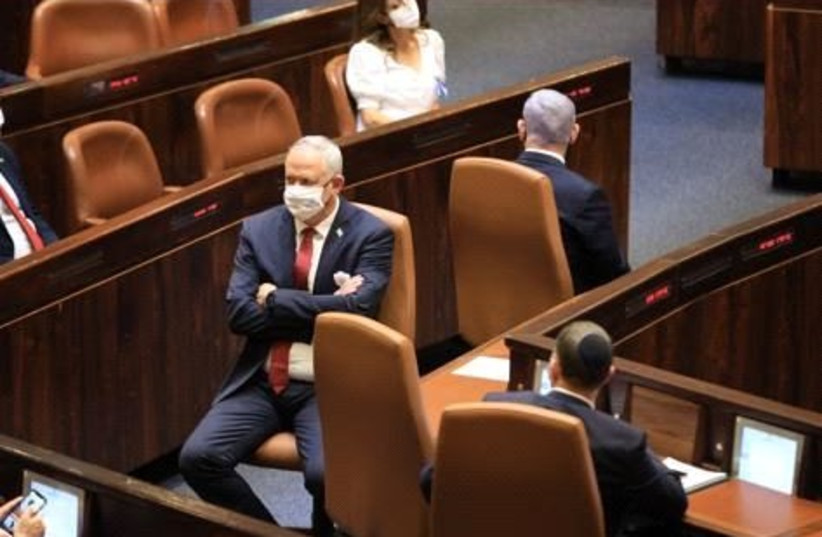I am not a religious person, I do not go to a synagogue – not even on Yom Kippur – and I do not fast. And yet, Yom Kippur is a special day in the year for me.
It is a day on which I ponder upon superfluous clashes, or especially harsh exchanges of words I had with other persons in the course of the previous year, which it is worth making an effort to settle, and to make amends, if necessary.
Many times, the pondering ends with a phone call (not on Yom Kippur itself), though not all clashes are resolved in this manner, and not every clash is forgivable or forgettable.
This Yom Kippur I decided to take a long walk to a friend, who lives on the other side of Jerusalem from where I live – on Hebron Road. I live in Nayot, near the Jerusalem Botanical Gardens. For a person of my age (77+), it is an hour’s walk, along hilly terrain, during which one crosses numerous neighborhoods – some more or less religious than others.
This year, like last year, because of the corona epidemic and the official limitation on how many persons may enter the closed confines of formal synagogues, many prayers took place outside private dwellings and public buildings. White, plastic chairs were scattered all over – though less so in secular neighborhoods than in religious ones. In the more frum neighborhoods, many men could be seen in kittel (a white robe worn over one’s clothes, especially on the High Holy Days).
Simultaneously, the carless streets were full of secular families accompanying their children on bicycles, tricycles and skates, or in playgrounds, walking their dogs, or simply taking a stroll.
All in all it was a very serene, harmonious and peaceful scene, in which everyone minded his/her own business, and no one intervened with anyone else. Not something one experiences in everyday life.
After several hours with my friend, I walked back home, with a feeling of exaltation.
UNFORTUNATELY, NONE of our politicians, but especially members of the opposition parties, thought of taking advantage of Yom Kippur to reduce the flames of the abusive verbal attacks on members of the Coalition, which have spread like wildfires in the Knesset and outside of it in the course of the first 100 days of the new government’s existence.
I was expecting to hear MK Moshe Gafni (Degel Hatorah) apologize for his statement in the Knesset plenum toward the end of July that Prime Minister Naftali Bennett is a murderer, responsible for the deaths of corona victims (he withdrew the word “murderer” immediately at the demand of the Knesset speaker, but did not apologize), and to hear MK Meir Porush (Agudat Yisrael) apologize for referring to Reform Rabbi MK Gilad Kariv (Labor) as a swine who “spreads out his hooves and claims to be pure” – this after Kariv had been elected as chairman of the Knesset Constitution, Law and Justice Committee toward the end of June.
Nobody is asking that the opposition in general, and the haredi MKs in particular, fall in love with the new government and the Coalition MKs, or that the haredim accept the Reform movement and its members with open arms. But there must be limits, and if their continuous, libelous, derogatory statements do not constitute a sin in connection with the relations between human beings, for which the perpetrator ought to seek forgiveness, while tearing toilet paper on the Sabbath does (which is a sin against God), I think that the term “sin” and forgiveness in our Jewish lexicon ought to be reexamined.
SEVERAL DAYS before Yom Kippur, the trial of former prime minister Benjamin Netanyahu reopened.
Netanyahu’s supporters, who believe that he is totally innocent on all counts, and that the State Attorney’s Office and the media fabricated the cases against him, argue that they will be absolved of their wrongdoing by simply letting Netanyahu off the hook – of course, all this without any connection to Yom Kippur.
That, however, is unlikely to happen, because no matter how sloppy the preparation of the cases by the authorities might have been, they firmly believe that Netanyahu is guilty of contacts of a criminal nature with sections of the media, and that he received excessively expensive gifts from wealthy friends and acquaintances, whom he then allegedly assisted in various ways – and all this as a regular way of life.
Netanyahu, on his part, shows no sign of even starting to understand what all the rumpus is about. The two sides seem to live on totally different planets.
Netanyahu’s supporters also argue that already at the beginning of the trial, the state’s case started to crumble. They maintain that the state invented a crime that doesn’t exist anywhere in the world, by declaring that favorable reporting can be considered to be a form of bribery.
This is presenting the issue in a lopsided manner. It is not the alleged “favorable reporting” that is considered bribery, but the regulatory benefits allegedly granted to the owners of the responsible media outlet by Netanyahu as prime minister and communications minister, which according to the State Attorney’s Office back in 2019 reached the value of NIS 1.8 billion, in order to obtain favorable reporting, that are considered bribery.
In addition, in several states politicians were charged with bribing media outlets for favorable reporting. True, in most cases the charges were dropped, but not because bribery in return for favorable reporting is not recognized as a crime, but because it is very difficult to prove that this is what actually took place.
What will have to be proven by the State Attorney’s Office in case 4000 is that there was no objective justification for allegedly granting the owner of Bezeq NIS 1.8b. in the form of benefits (if indeed this is the sum granted), and that there was a direct connection between the alleged benefits and the reporting on the Netanyahu family in the relevant period.
Another claim of Netanyahu’s supporters is that former CEO of Walla Communications Ilan Yeshua spoke with numerous politicians who received favorable reporting from Walla, and that there was nothing unusual about his relations with the Netanyahu family.
Of course, there is nothing unusual about politicians trying to receive positive reporting in the various media outlets. However, in none of the cases mentioned by Netanyahu’s defense lawyers was there any suggestion that bribes had been offered and received, or that complaints were continuously lodged by the politicians named if they were not satisfied with the outcome (in Netanyahu’s case, it was his son Yair who performed the job of constant complainer).
No one knows how Netanyahu’s trials will end, and when. It is clear that it would be much better for both Israel and its democracy, and for Benjamin Netanyahu personally, if the whole affair were to end in a plea bargain, which would leave Netanyahu out of prison but also out of Israeli politics. But as long as Netanyahu believes that he is absolutely innocent and that it is unlikely that he might be found guilty on any of the charges brought against him, or that in future he might be prevented from returning to serve as prime minister for legal reasons – a plea bargain of any sort seems unlikely.
Unless one happens to believe in miracles...
The writer was a researcher in the Knesset Research and Information Center until her retirement and recently published a book in Hebrew, The Job of the Knesset Member – An Undefined Job, soon to be published in English by Routledge.

